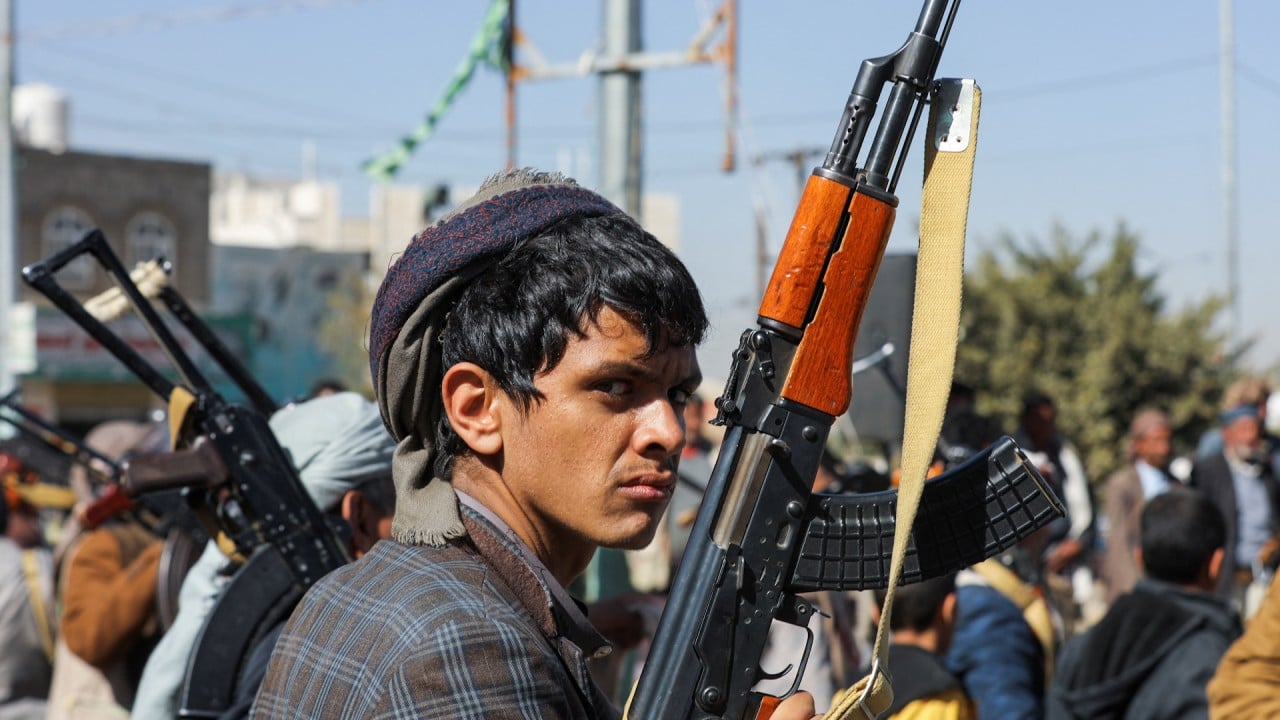That position has been firmly held by Beijing as the war stretches on, with tens of thousands killed.
“All parties need to work together to prevent the conflict from spilling over, and [we] call for the immediate release of all detained persons,” said a statement on the meeting from China’s foreign ministry.
China can achieve that, they said, by first condemning the Hamas militant group – something Beijing has avoided – and using its leverage over Iran to prevent a spillover.
“Israel definitely expects a more balanced position from China,” said Efraim Inbar, professor of political studies at Bar-Ilan University in Tel Aviv, adding that Beijing’s approach has “clearly estranged” Israel.
There’s more that China could possibly do.
“Beijing enjoys excellent relations with the two sides of the conflict, with almost all of the relevant regional players and international players,” said Nidal Foqaha, director of the West Bank-based Palestinian Peace Coalition-Geneva Initiative.
And there has already been a spillover – in the Red Sea, a crucial maritime corridor.
The attacks were met with a fierce response from the United States, as it banded together a group of countries to launch multiple attacks on Houthi targets in Yemen.
Yet again, there were global expectations that Beijing would tap into its influence to urge Iran to rein in the Houthis, as they are believed to have been supported and trained by Tehran.
Beijing has also used the conflict to flag Washington’s failure in the region.
“The situation in the Red Sea has exposed China in its real size: economically very significant in the region, yet a far stretch from actually being a world power,” said Ori Sela, an associate professor at Tel Aviv University.
Is there a chance that things could change? Some progress has been seen recently.
While official statements from both sides left out discussions over the Red Sea, Chinese officials have reportedly pressed Iran to rein in the Houthis “or risk harming business relations with Beijing”.
It remains to be seen if China’s diplomatic efforts will suffice. But one thing is for sure: China’s response to the conflicts, and what it does next, will continue to be closely examined as it seeks to establish itself as a world power.
60-Second Catch-up
Deep dives
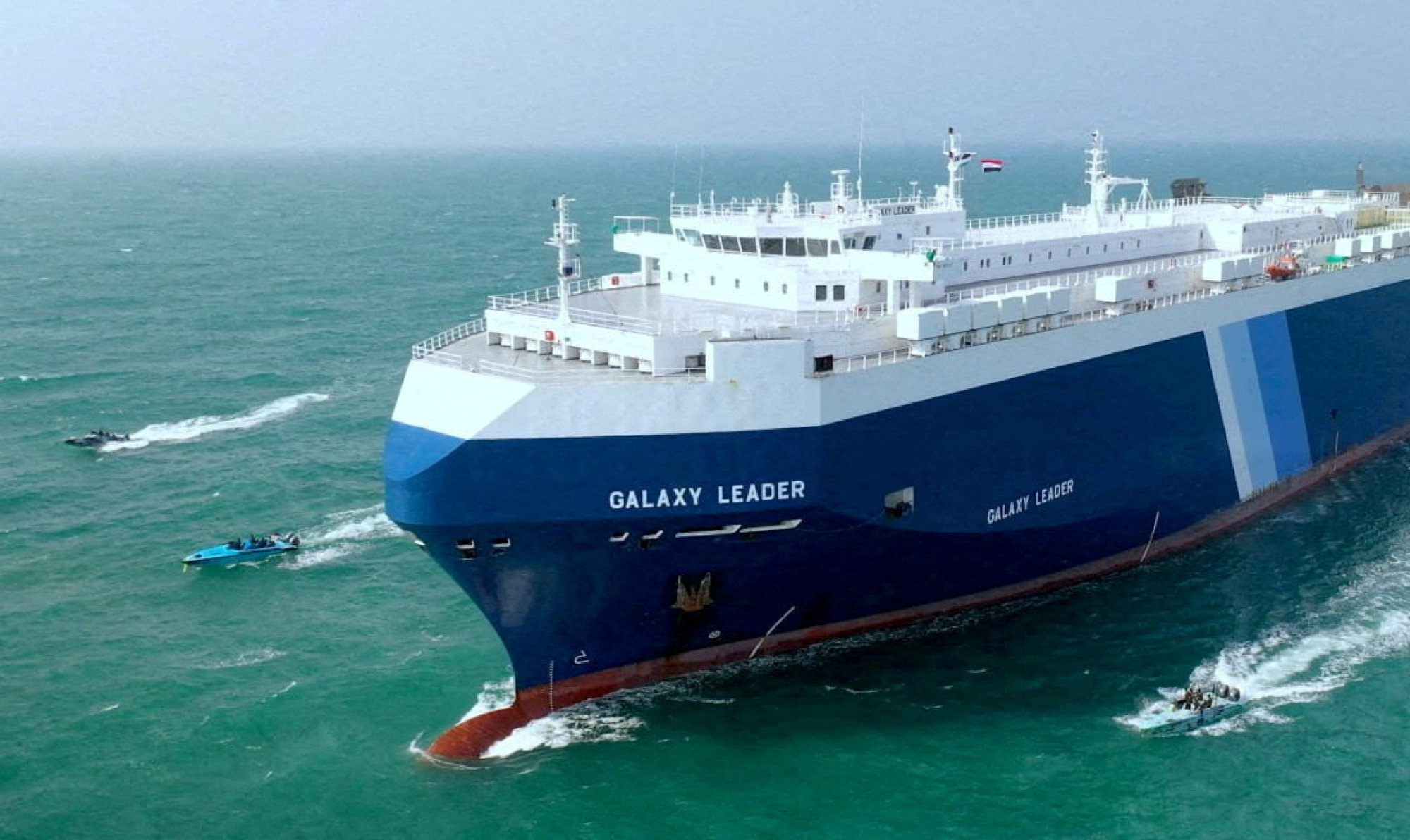
Great power lite? Why China is reluctant to wade into the Red Sea crisis
-
Beijing has called for an end to the attacks on the ships and expressed concern over the escalating situation
-
But it is unlikely to play a bigger role in resolving the conflict, affecting its global standing, analysts say
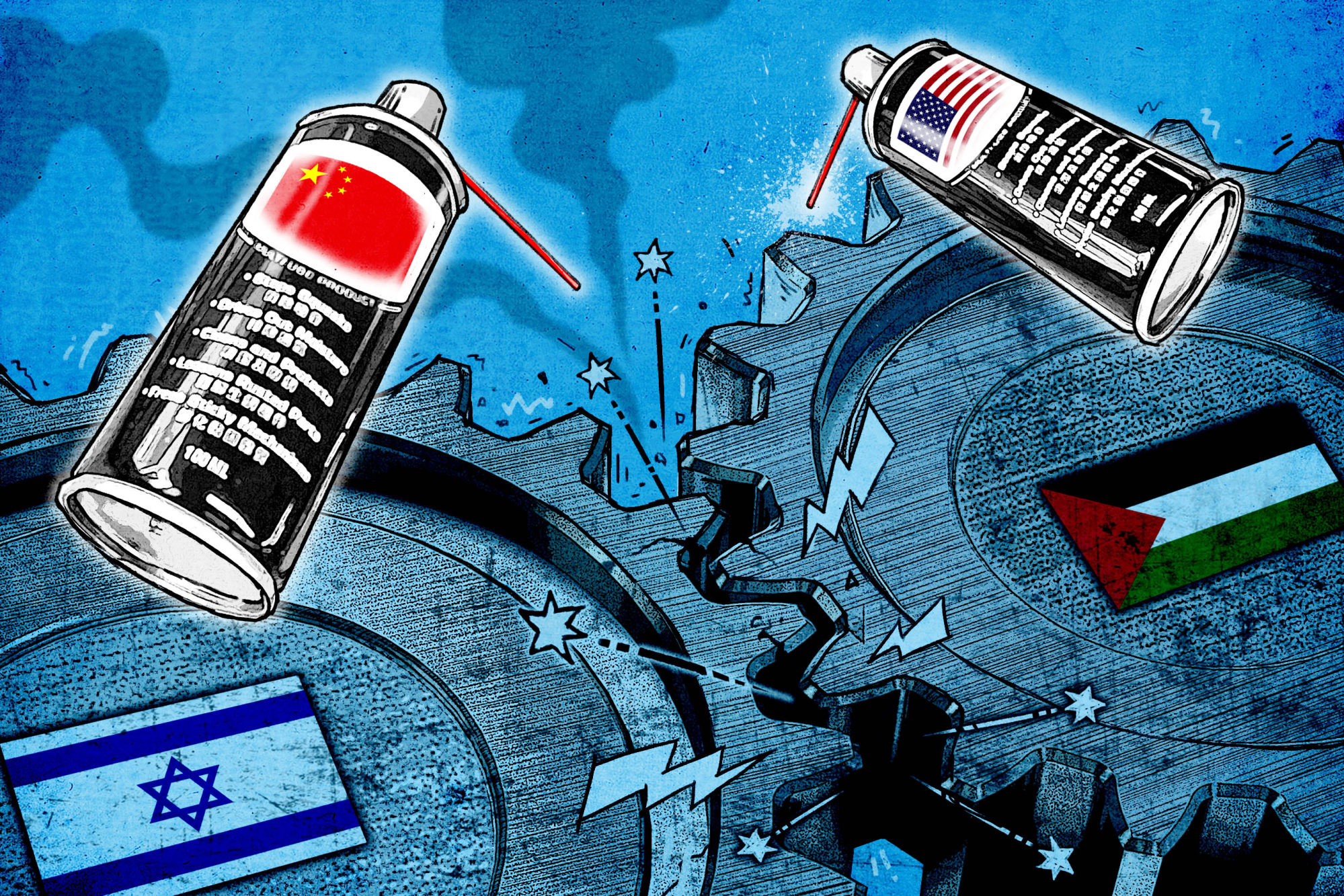
Could China play a role in brokering Israeli-Palestinian two-state solution?
-
Beijing is long-time proponent of plan for independent Palestine to coexist with Israel – an idea that has seen renewed enthusiasm in the West
-
While China’s influence is rising in Middle East, analysts are divided on whether it has leverage to become key player in peace process alongside US
Chinese President Xi Jinping said last month that a “two-state solution” was the fundamental way out from “the cycle of conflicts” between Israel and Palestinians.
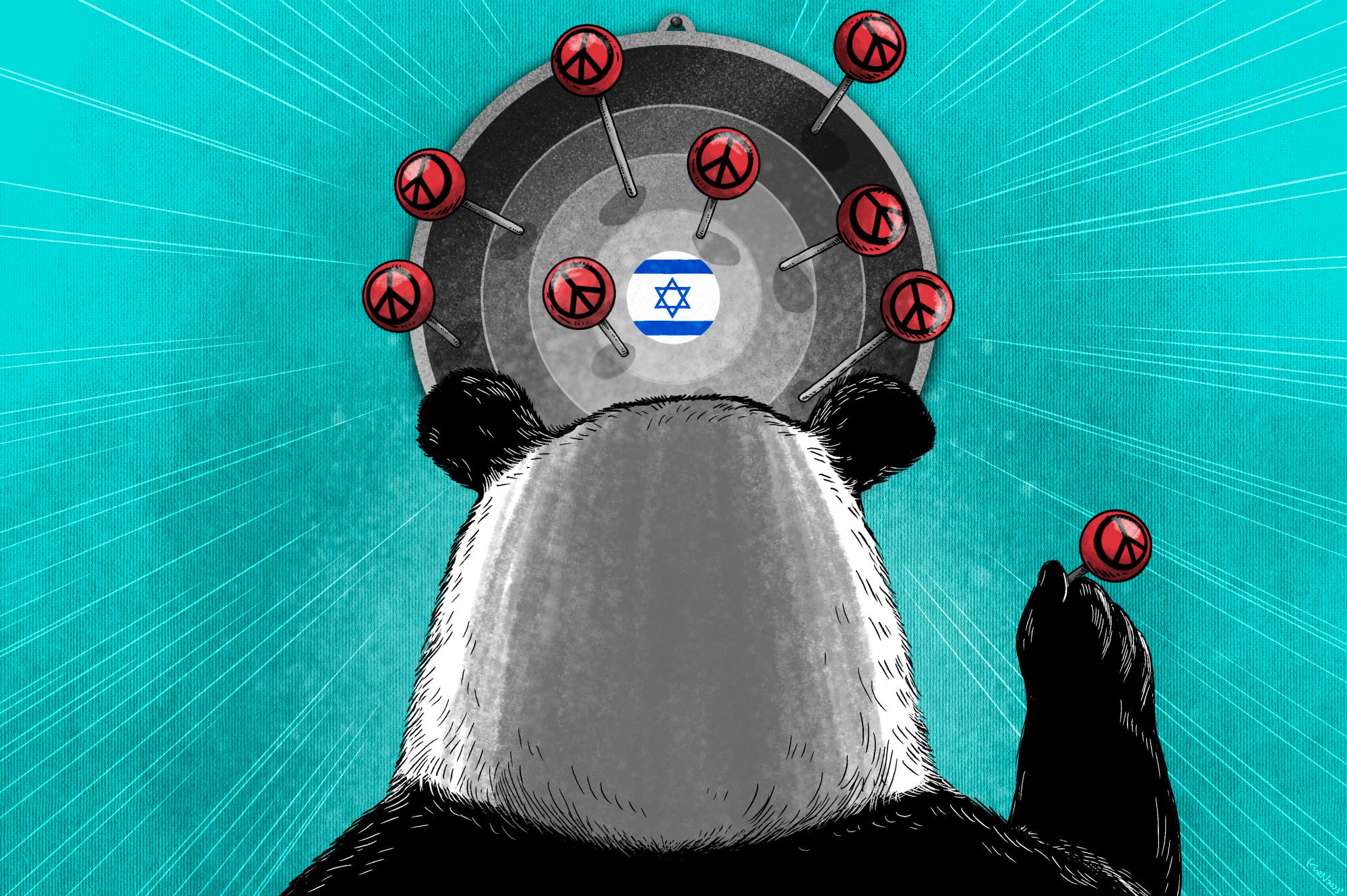
Has China ‘clearly estranged Israel’ with its stance on the war in Gaza?
-
China’s diplomatic efforts to stop the war appear to largely revolve around influencing Middle Eastern nations other than Israel
-
Even while seen as having some diplomatic sway with Iran, China does not seem willing or able to use its influence to affect the conflict, say analysts
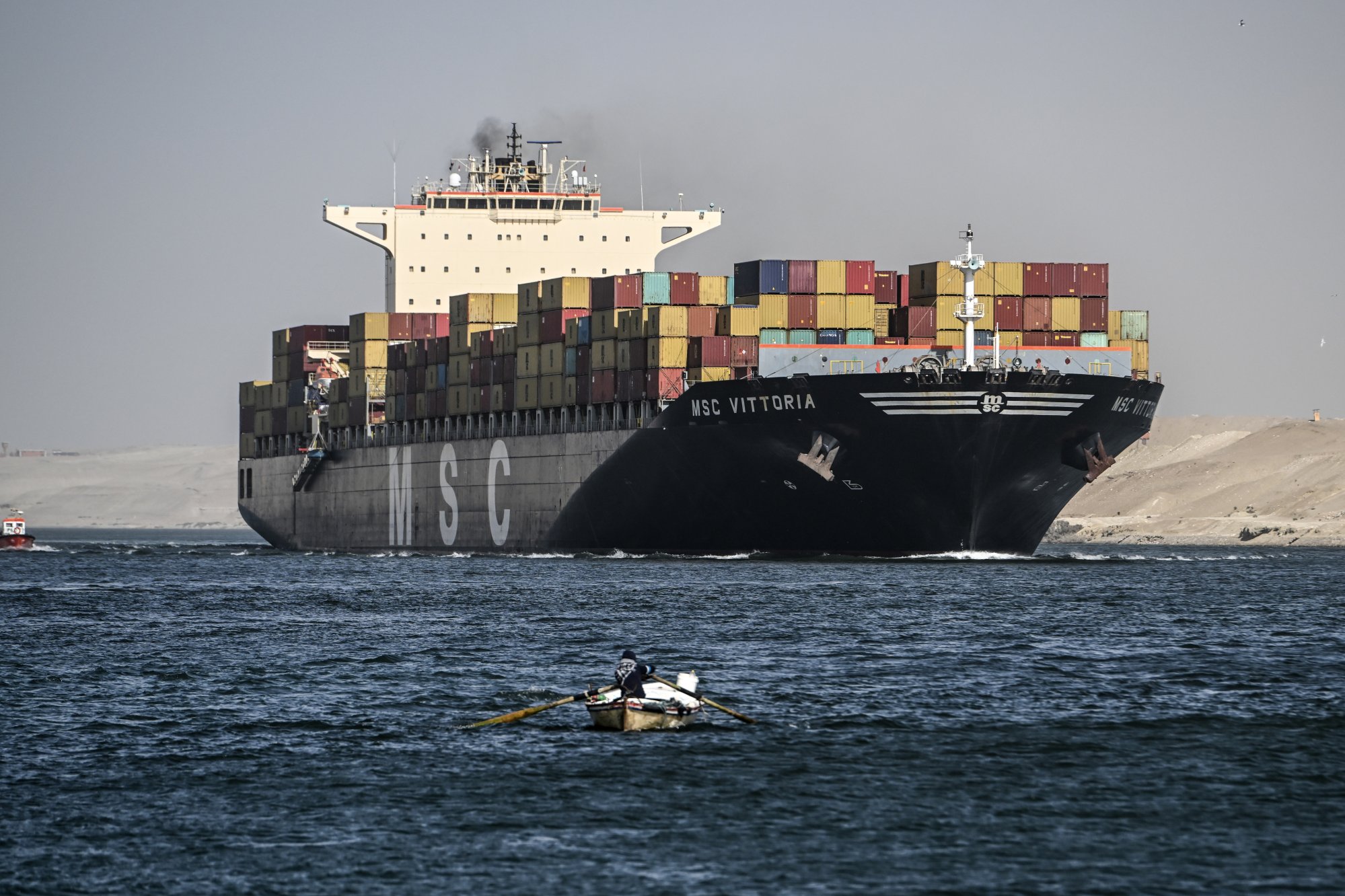
Firms eye Plan B ahead of Lunar New Year as Red Sea crisis roils supply chains
-
Average rate during the second week of January for shipping a 40-foot container between Europe and China was about US$5,400, up from US$1,500 a week earlier
-
Demand for containers in China has increased ahead of the Lunar New Year, with firms seeking to avoid the Red Sea following recent attacks by Houthi militants
Shipping prices between Europe and China have continued to soar amid the Red Sea crisis, weighing on China’s fragile export growth and pushing its companies to seek contingency plans to fortify their supply chains ahead of the Lunar New Year.
The average rate for the second week of January was about US$5,400 for a 40-foot container, up from US$1,500 a week earlier, according to Container xChange, an online platform for container logistics and operations in Germany.
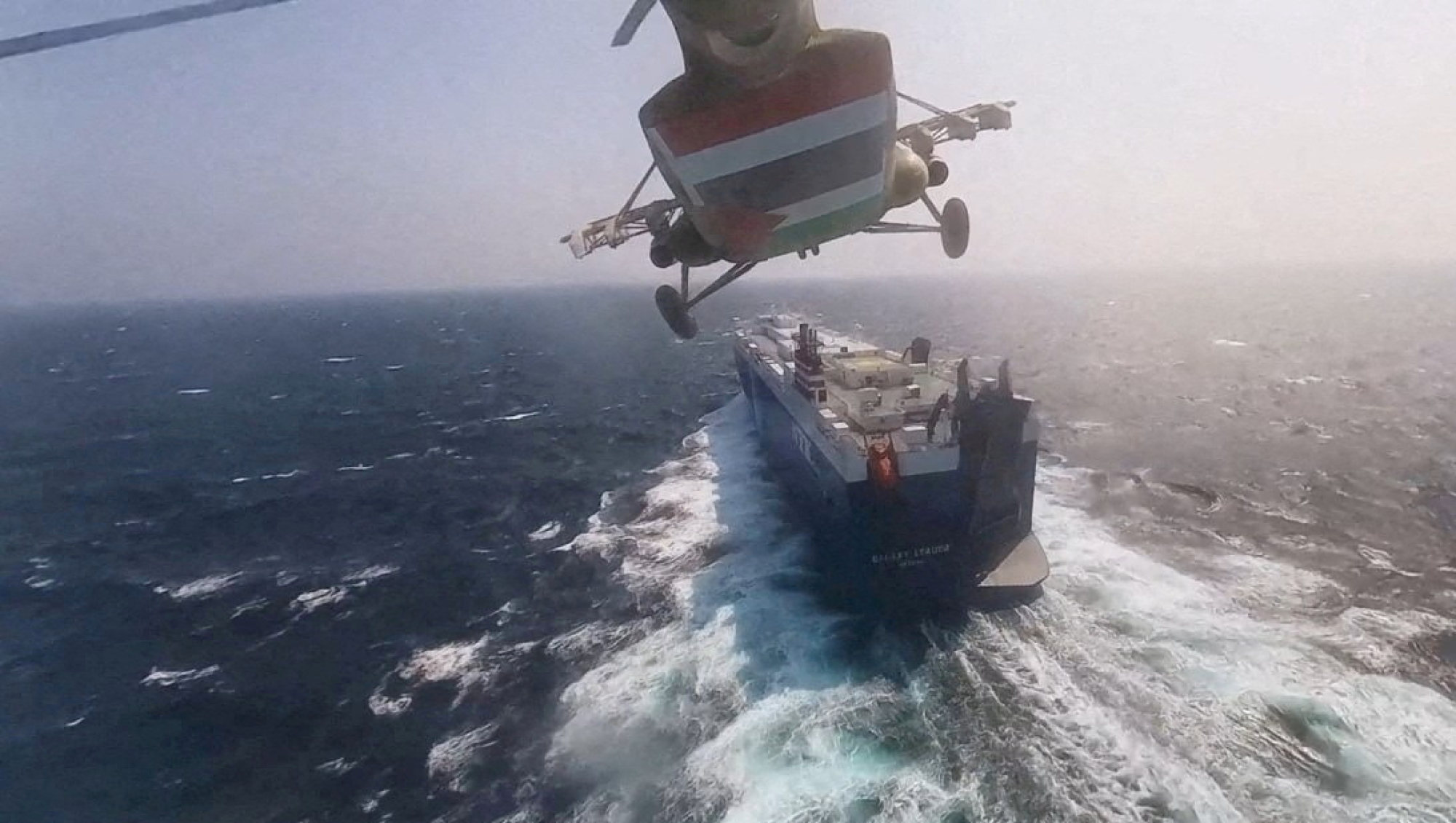
‘Prices are soaring’: Red Sea attacks push up China-Europe container rates
-
Inquiries about the China-Europe Railway Express have increased significantly since Houthi militants began targeting vessels navigating the Red Sea
-
Ships face an extra 10 days at sea if they divert via the Cape of Good Hope at the southern tip of Africa instead of the more direct route through Egypt’s Suez Canal
As global shipping giants are forced to divert container ships via the Cape of Good Hope at the southern tip of Africa in the wake of attacks by the Houthi militants in the Red Sea, shipping prices between China and Europe have shot up amid concerns over supply chain disruptions.
“The price of the Mediterranean route is soaring now,” said Xia Xiaoqiang, a Tianjin-based freight forwarder.
Global Impact is a weekly curated newsletter featuring a news topic originating in China with a significant macro impact for our newsreaders around the world.


